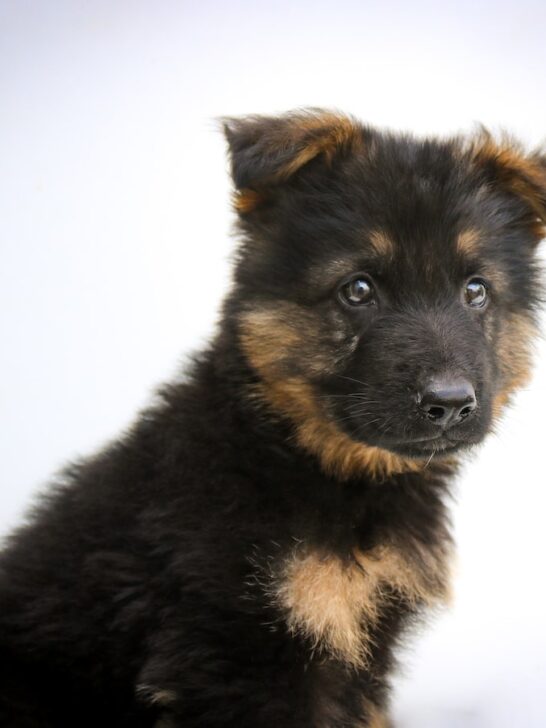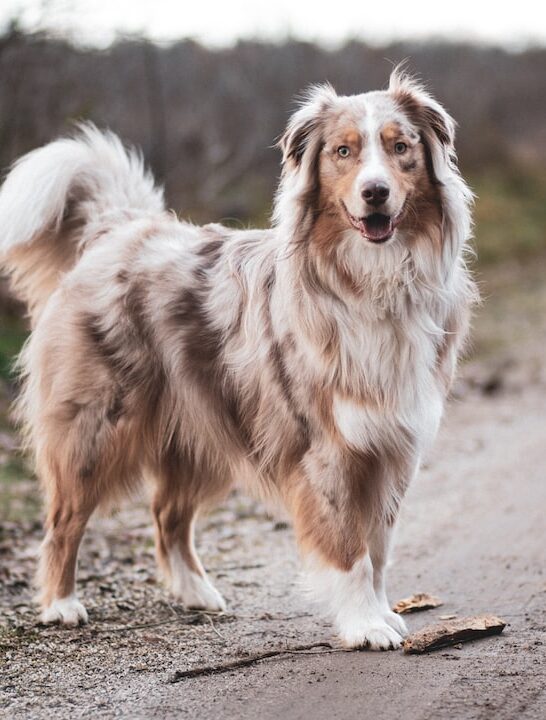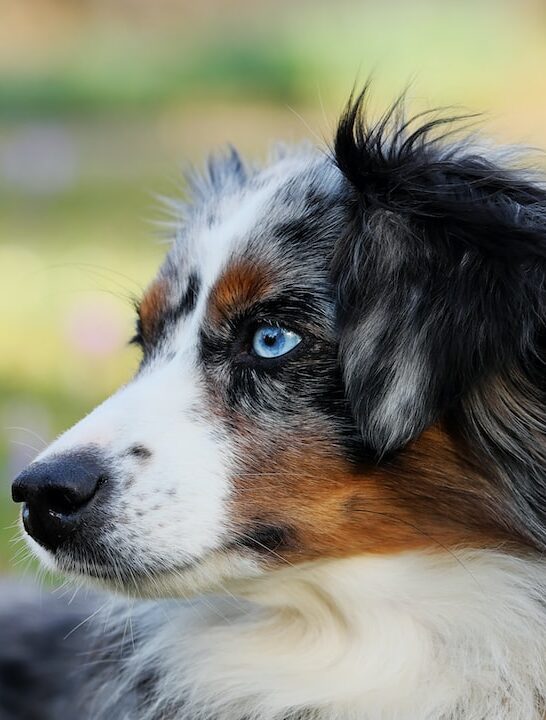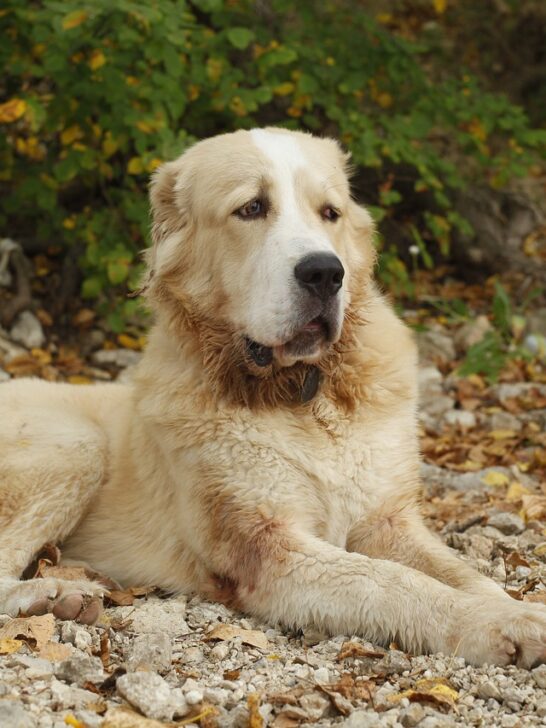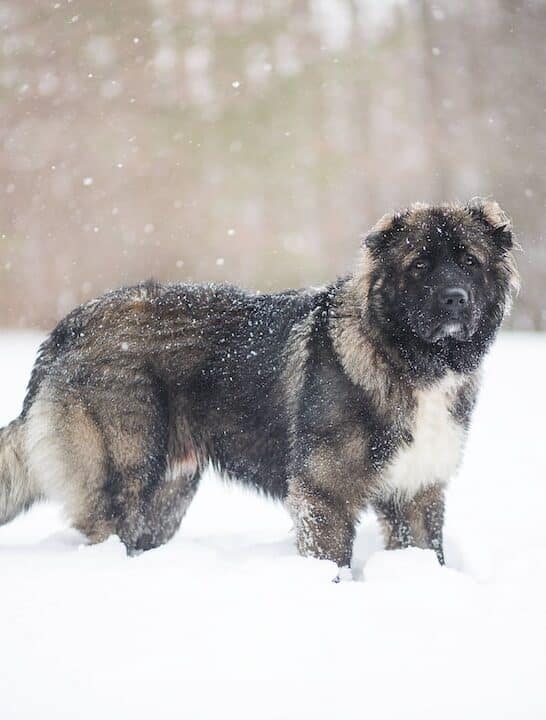Boston Terrier German Shepherd Mix: the Powerful, Personable and People-Pleasing Pup
Talk about an unlikely pairing! Both the Boston Terrier and the German Shepherd are truly iconic purebred dog breeds, but at first glance, they don’t seem to have much else in common.
To see the similarities requires taking a look “under the hood,” so to speak.
Delving into the Boston Terrier and the German Shepherd’s breed history and development reveals surprising commonalities that make this crossbreeding a surprisingly smart move.
In this article, learn what you need to know about the Boston Terrier German Shepherd mix and decide whether this powerful, personable, and people-pleasing hybrid dog maybe your next canine companion!
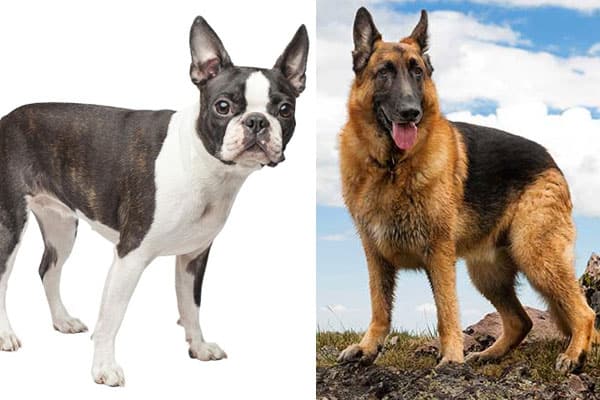
The History of the German Shepherd and the Boston Terrier
One of the best ways to get to know a new emerging dog breed like the Boston Terrier German Shepherd mix is to learn as much as you can about each parent dog’s breed history.
So let’s take a look at each parent dog now.
German Shepherd history
The German Shepherd is the second most popular (out of 195 American Kennel Club registered dog breeds) purebred dog breed in the United States.
This dog was first bred and developed in the late 19th century by a German officer named Captain Max von Stephanitz. Captain von Stephanitz wanted to create the ideal herding and guard dog for livestock.
He succeeded so well that his new dog breed, the aptly named German Shepherd dog, was handily repurposed into service in the military, police, and private security forces when herding dogs were no longer widely used.
The popularity of canine movie stars Rin Tin Tin and Strongheart, both GSDs, ushered in the era of the German Shepherd as a companion canine.
Today, German Shepherds are so popular most people can name the breed at first glance, even if they aren’t that knowledgeable about dogs in general.
Boston Terrier history
The Boston Terrier is the 21st most popular (out of 195 registered dog breeds) purebred dog breed in the United States.
The Boston Terrier has gained the nickname of “American Gentleman” for its smart “tuxedo-type” coat coloration. These dogs are the official state dog of Massachusetts, of course, as well as the mascot of Boston University.
The Boston Terrier is truly a pint-sized pleasure, with manners to match their distinguished appearance. But what most people don’t know is that this dog was originally bred for fighting and ratting!
However, the original Boston Terrier was quite a bit bigger and more fierce in temperament than the dog we know and love today.
Today’s version, with its short muzzle and compact body, is more suited to the indoor life.

Boston Terrier German Shepherd Mix: Personality and Temperament
By learning more about the basic personality and temperament traits of the German Shepherd and Boston Terrier dog breeds, it becomes possible to guesstimate what type of behavior to expect from a Boston Terrier German Shepherd mix.
The German Shepherd’s near-universal popularity speaks volumes about this dog’s underlying temperament and personality.
GSDs are “people” dogs to their core and are intensely devoted to and loving towards “their” people.
But all that can change if a stranger approaches. Strange people and strange animals will see a different dog – aloof, wary, and guarded.
It can take time and careful effort to properly socialize a German Shepherd to tolerate guests and other family pets.
While German Shepherds are great with kids, their large size can make it wise to wait until your kids are a little older and bigger themselves to avoid any preventable mishaps.
The Boston Terrier could easily be described as a personality on legs. This dog is a natural comedian and entertainer and is smart enough to readily learn tricks to perform on cue.
While the Boston Terrier is very friendly and sociable, this dog does have a nice sharp bark and isn’t afraid to use it. Boston Terriers can make great family guard dogs for this reason.
Boston Terriers are natural athletes and love to romp and play and run. However, their short muzzle type means they need to be closely supervised during athletic activity.
From this overview, it is easy to see that your Boston Terrier German Shepherd mix will be very focused on you and very people-oriented in training and play.
But you will also get a very reliable guard dog who may need some socialization to tolerate other people and animals.
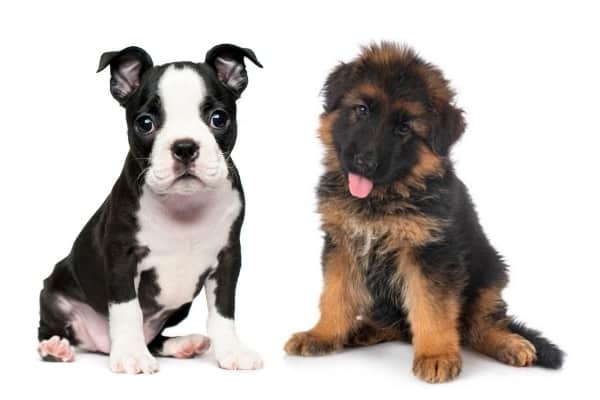
Boston Terrier German Shepherd Mix: Size, Height and Weight
If there is one trait where the German Shepherd and the Boston Terrier differ the most, it would have to be in size, height, and weight.
An adult German Shepherd dog can easily weigh 50 to 90 pounds and stand 22 to 26 inches tall (paw pads to shoulder). Male dogs tend to be taller and weigh more than female dogs in adulthood.
The Boston Terrier as an adult will typically weigh between 12 and 25 pounds and stand 15 to 17 inches tall (paw pads to shoulder).
Because there is such a difference in size and height between the two parent dogs, the best way to predict the adult size of your GSD Boston Terrier mix is to meet your puppy’s specific parent dogs.
German Shepherds, in particular, can vary by up to 40 pounds in weight alone. But it is safe to assume your puppy will weigh at least 40 pounds (medium dog size) and likely will stand around 20 inches tall.
Boston Terrier German Shepherd Mix: Training and Exercise Needs
Both the German Shepherd and the Boston Terrier are great athletes and enthusiastic participants in canine agility, exercise, and playtime.
But each has different needs and considerations when it comes to over-exertion, as we will discuss in this section.
The German Shepherd is an extraordinary canine athlete bar none.
The breed is also known for maintaining an intense focus while “on the job,” whether that job is guarding your family or doing search and rescue or sniffing out contraband at the airport.
German Shepherds are so accustomed to having a demanding job to do that they need a lot of daily activity and exercise to adjust well to family life. A bored GSD is likely going to turn into a destructive dog.
German Shepherds can be rambunctious in puppyhood and early and ongoing training and socialization will be key to help them learn to channel their high energy and focus productively.
The Boston Terrier is a lively and upbeat dog that loves to perform and do tricks and play.
This dog is also very smart and athletic and will benefit from early and ongoing socialization and training to learn how to manage their extroverted personality.
Because the Boston Terrier has the shortened muzzle type, it is important to guard against over-exertion, which we will look at more closely in the section on health here.
From examining the exercise and training needs of each parent dog, you can deduce that your Boston Terrier German Shepherd Mix dog will enjoy the play, exercise, and activity and will quite likely excel in canine agility and sports.
You will also benefit from both parent dogs’ intense drive to please “their” people during training.
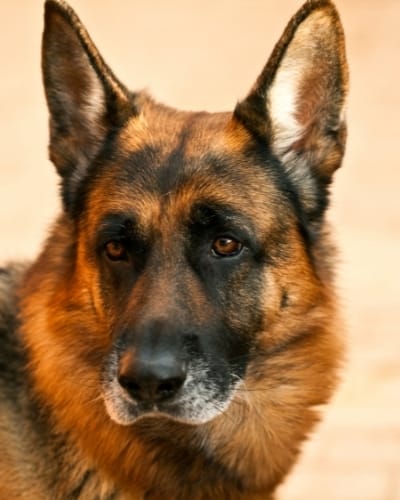
Boston Terrier German Shepherd Mix: Shedding, Grooming and Coat Care
Another area where the Boston Terrier and German Shepherd dogs are less alike is when it comes to shedding and coat care.
The German Shepherd dog may have a boatload of great qualities, but a low-shedding coat is not one of them. These dogs can shed up a storm!
This is never more apparent than during the seasonal “coat blow” when the undercoat sheds out completely.
German Shepherds have a double layer coat, with the upper layer being medium length, coarse, and water repellant. The under layer is the insulating layer that keeps the GSD warm.
German Shepherds will benefit from weekly brushing and occasional baths as needed. Brushing is especially helpful to control shed hair during the seasonal shifts.
The Boston Terrier’s coat is short and fine, but it is not non-shedding unfortunately. This dog will shed, although not profusely.
The Boston Terrier coat is easy to maintain with weekly brushing and bathing as needed. These dogs usually don’t have much if any “doggy odor.”
It can be challenging to predict your Boston Terrier German Shepherd mix dog’s adult coat in puppyhood.
You can expect a dog that sheds lightly year-round and perhaps more heavily seasonally. But you won’t have a lot of bathing or brushing to do.
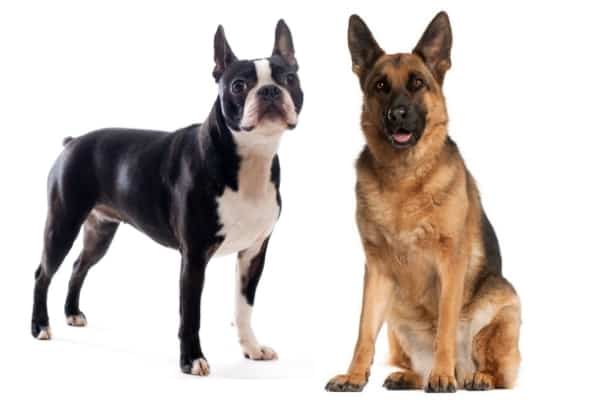
Boston Terrier German Shepherd Mix: Longevity and Health
The German Shepherd has an average life expectancy of seven to 10 years.
The German Shepherd has been consistently bred for a characteristic sloping back that can lead to back problems for this dog breed.
Degenerative myelopathy is the name given to this health condition when it results in degeneration of the spinal column and eventual paralysis.
Here is where it can be healthy for the German Shepherd dog breed as a whole to crossbreed with another dog breed that has a strong back like the Boston Terrier.
Other known heritable (genetic) breed health issues to watch for include hip and elbow dysplasia, cardiac, eye, thyroid, and temperament issues.
The Boston Terrier has an average life expectancy of 11 to 13 years.
As we mentioned here earlier, the Boston Terrier has the short muzzle characteristic of brachycephalic dog breeds.
These dogs have often been bred specifically to achieve the popular “smush face” that people find so cute.
But there are health issues associated with a short muzzle, including shortened respiratory passages, trouble breathing, easily overheating, crowded jaws, and difficulty grasping and chewing food.
For this reason, it is important to monitor Boston Terriers and make sure they can grasp and chew their food and that they are not overheating and struggling to breathe.
Brachycephalic Obstructive Airway Syndrome, or BOAS, is what these symptoms are called at their worst.
This is also why crossbreeding a short muzzle breed like the Boston Terrier with a long muzzle breed like the German Shepherd can ultimately be healthy for the Boston Terrier breed over the long term.
Other known heritable (genetic) breed health issues to watch for include patellar luxation (trick kneecap), eye issues, and congenital deafness.
Now you can see more clearly why hybrid dog breeding programs can be mutually advantageous for certain purebred dog breeds that have known health issues.
When you choose a Boston Terrier German Shepherd mix dog rather than opting for a purebred German Shepherd or Boston Terrier dog, you may potentially gain a healthier pet dog with greater longevity and fewer respiratory and back problems.
Boston Terrier German Shepherd Mix: Is This the Right Dog for You?
It is easy to love the Boston Terrier German Shepherd Mix dog. Both breeds contribute a love for people, great loyalty and affection, native smarts, and athleticism.
As well, you can get some of the great traits of each breed without the large size of a German Shepherd, making this mixed dog an easier fit in smaller living spaces.
Is the Boston Terrier German Shepherd mix your next pet dog? Let us know in the comments here!
See also: Australian Shepherd Terrier Mix
























